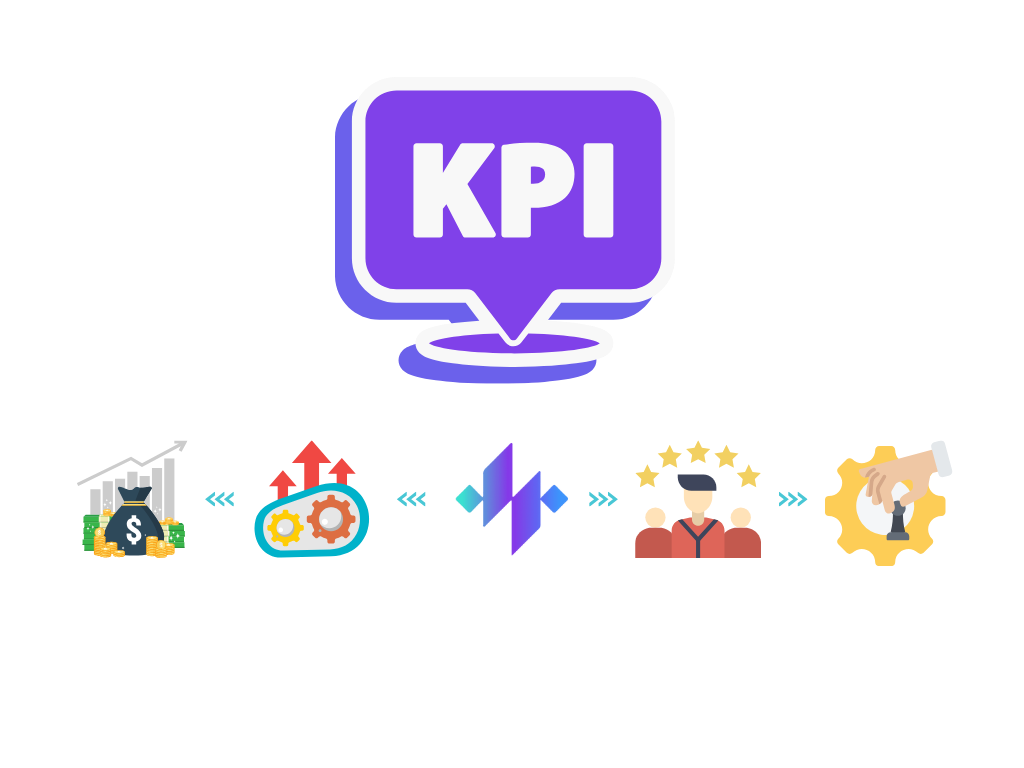ARTICLE
2024 Business Guide: Top 10 KPIs Every Company Should Monitor

Article Overview
Unlock your business potential with CockpitZone.
Streamline operations, boost productivity, and drive growth with our powerful tools.
Request a demo
In the 2024 Business Guide, tracking the right Key Performance Indicators (KPIs) is crucial for businesses to monitor performance, make informed decisions, and drive growth. Focusing on essential KPIs across financial, operational, and customer-related metrics will help businesses stay competitive and efficient. Here are the top 10 KPIs every business should track:

Financial KPIs
1. Revenue Growth Rate
Definition: The percentage increase or decrease in revenue over a specific period.
- Importance: Indicates overall business growth and market demand for products or services.
- How to Measure: (Current Period Revenue – Previous Period Revenue) / Previous Period Revenue x 100.
2. Net Profit Margin
Definition: The percentage of revenue that remains as profit after all expenses are deducted.
- Importance: Reflects the overall profitability and efficiency of the business.
- How to Measure: (Net Profit / Total Revenue) x 100.
3. Cash Flow
Definition: The net amount of cash being transferred into and out of the business.
- Importance: Essential for assessing liquidity, operational efficiency, and financial health.
- How to Measure: Cash Inflows – Cash Outflows.

Operational KPIs
4. Operational Efficiency Ratio
Definition: A measure of the efficiency of a company’s operational processes.
- Importance: Indicates how well the company utilizes its resources to generate revenue.
- How to Measure: Operating Expenses / Total Revenue.
5. Inventory Turnover RatioInventory Turnover Ratio
Definition: The number of times inventory is sold and replaced over a period.
- Importance: Reflects inventory management efficiency and demand forecasting accuracy.
- How to Measure: Cost of Goods Sold / Average Inventory.
6. Employee Productivity
Definition: The output produced by employees relative to the input (e.g., hours worked).
- Importance: Measures workforce efficiency and effectiveness.
- How to Measure: Total Output / Total Input (e.g., revenue per employee).

Customer-Related KPIs
7. Customer Satisfaction Score (CSAT)
Definition: A measure of customer satisfaction with products or services.
- Importance: Indicates the quality of customer experience and service.
- How to Measure: (Number of Satisfied Customers / Number of Survey Responses) x 100.
8. Customer Retention Rate
Definition: The percentage of customers who continue to do business with a company over a specific period.
- Importance: Reflects customer loyalty and the effectiveness of retention strategies.
- How to Measure: ((Number of Customers at End of Period – Number of New Customers) / Number of Customers at Start of Period) x 100.
9. Net Promoter Score (NPS)
Definition: A measure of customer loyalty and likelihood to recommend the business to others.
- Importance: Indicates overall customer satisfaction and potential for growth through referrals.
- How to Measure: Indicates overall customer satisfaction and potential for growth through referrals.

Strategic KPI
10. Return on Investment (ROI)
Definition: The ratio of net profit to the cost of investment.
- Importance: Measures the profitability of investments and helps in making informed financial decisions.
- How to Measure: (Net Profit / Cost of Investment) x 100.
Conclusion
Tracking these top 10 KPIs in 2024 will provide businesses with a comprehensive view of their financial health, operational efficiency, and customer satisfaction. By focusing on these essential metrics, companies can make data-driven decisions, optimize their strategies, and achieve sustainable growth. Whether you are a startup or an established enterprise, integrating these KPIs into your performance management system will help you stay competitive and responsive to market changes.



